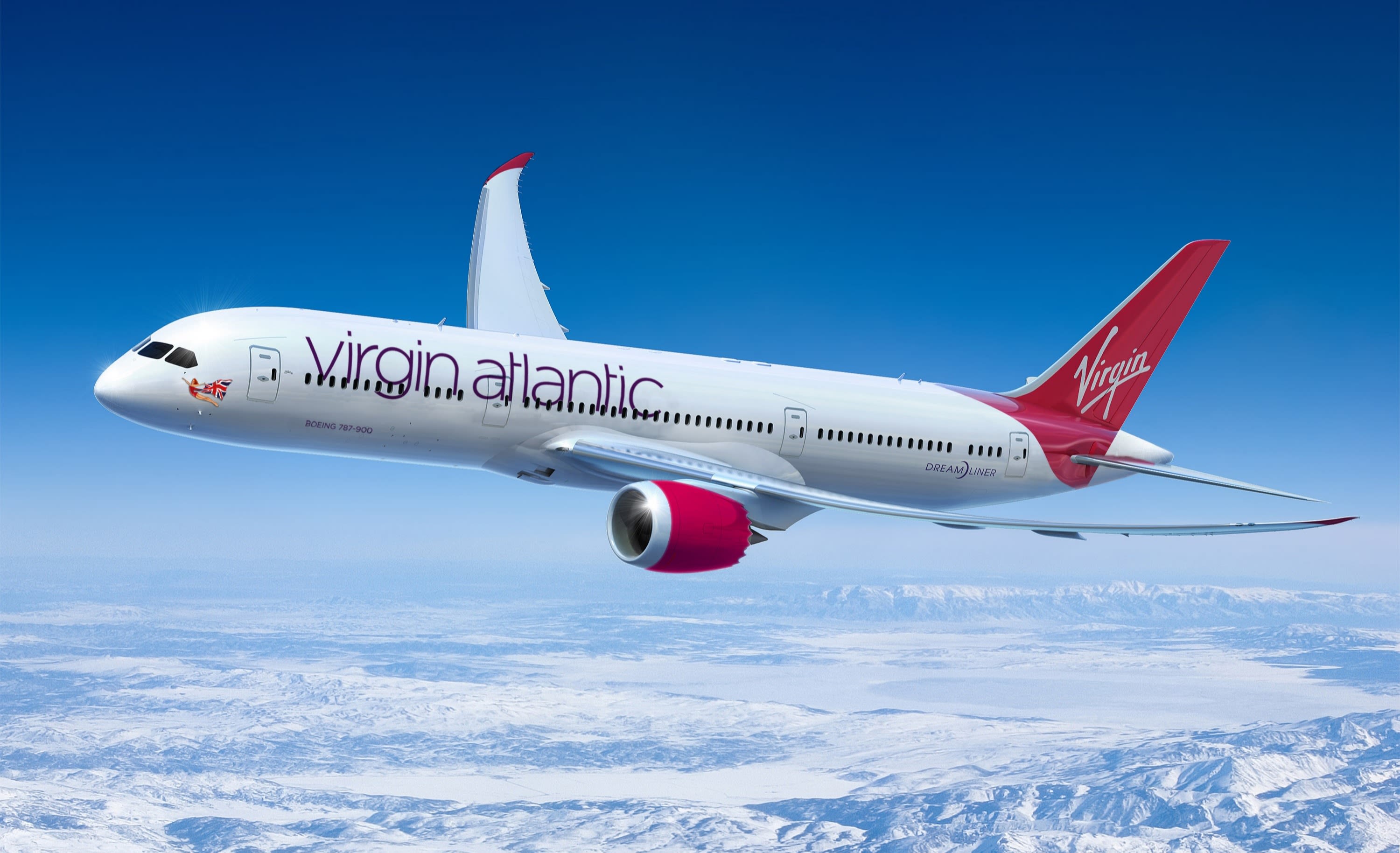Virgin Atlantic’s historic 100% Sustainable Aviation Fuel transatlantic flight closer to takeoff
Virgin Atlantic has announced that the world’s first 100% Sustainable Aviation Fuel (SAF) transatlantic flight will take off on 28 November 2023, pending regulatory approvals and testing.
Virgin Atlantic and Rolls-Royce have already completed a successful blend ground test on the Rolls-Royce Trent 1000 engine, which powers the Boeing 787 aircraft that will make the flight.
Air bp and Virent have also been announced as the suppliers for the 60 tonnes of SAF required for the historic flight. The SAF will be produced through the Hydroprocessed Esters and Fatty Acids (HEFA) pathway as well as synthetic aromatic kerosene (SAK) SAF at an 88% and 12% blend ratio.
Virgin Atlantic is committed to finding more sustainable ways to fly on its mission to Net Zero 2050. It already operates one of the most fuel and carbon efficient fleets across the Atlantic, and this flight will build on the airline’s 15-year track record for leading on SAF. The flight also demonstrates the need for collaboration in aviation and the need for the industry to go further and develop a UK SAF industry to meet aviation’s 10% SAF by 2030.
Shai Weiss, CEO, Virgin Atlantic, said: “The 100% Sustainable Aviation Fuel transatlantic flight will be a historic moment in aviation’s roadmap to decarbonisation. Alongside fleet transformation, SAF is the most readily available way for our industry to decarbonise, but currently there’s not enough supply and without it and the radical collaboration required to produce it, we can’t meet our 2030 targets. We need UK government support to create a UK SAF industry to allow for every single flight out of the UK to operate with 100% SAF – if we make it, we can fly it.”
SAF typically delivers CO2 life cycle emissions savings of more than 70%, while still performing like traditional jet fuel. SAF has a fundamental role to play in aviation’s decarbonisation and pathway to Net Zero 2050. Currently SAF represents less than 0.1% of jet fuel volumes and fuel standards only allow for a 50% SAF blend in commercial jet engines. The Virgin Atlantic flight in November will demonstrate the potential of SAF as a 100% drop-in replacement for the fossil fuels being used today.
Virgin Atlantic has led a consortium joint funded by the Department for Transport to make this flight a reality. The consortium includes Rolls-Royce, Boeing, University of Sheffield, Imperial College London and RMI.
Virgin Atlantic and the consortium will leverage the 100% SAF transatlantic flight to further SAF use, as well as addressing other environmental impacts of the sector. The project will demonstrate further reductions in CO2 from operational efficiencies, contribute to research and development into the non-CO2 effects of flying, and provide an end-to-end life cycle analysis of the flight. Any residual CO2 emissions from the flight will be mitigated using innovative carbon removals from biochar projects.
Visit Virgin Atlantic to find out more.


